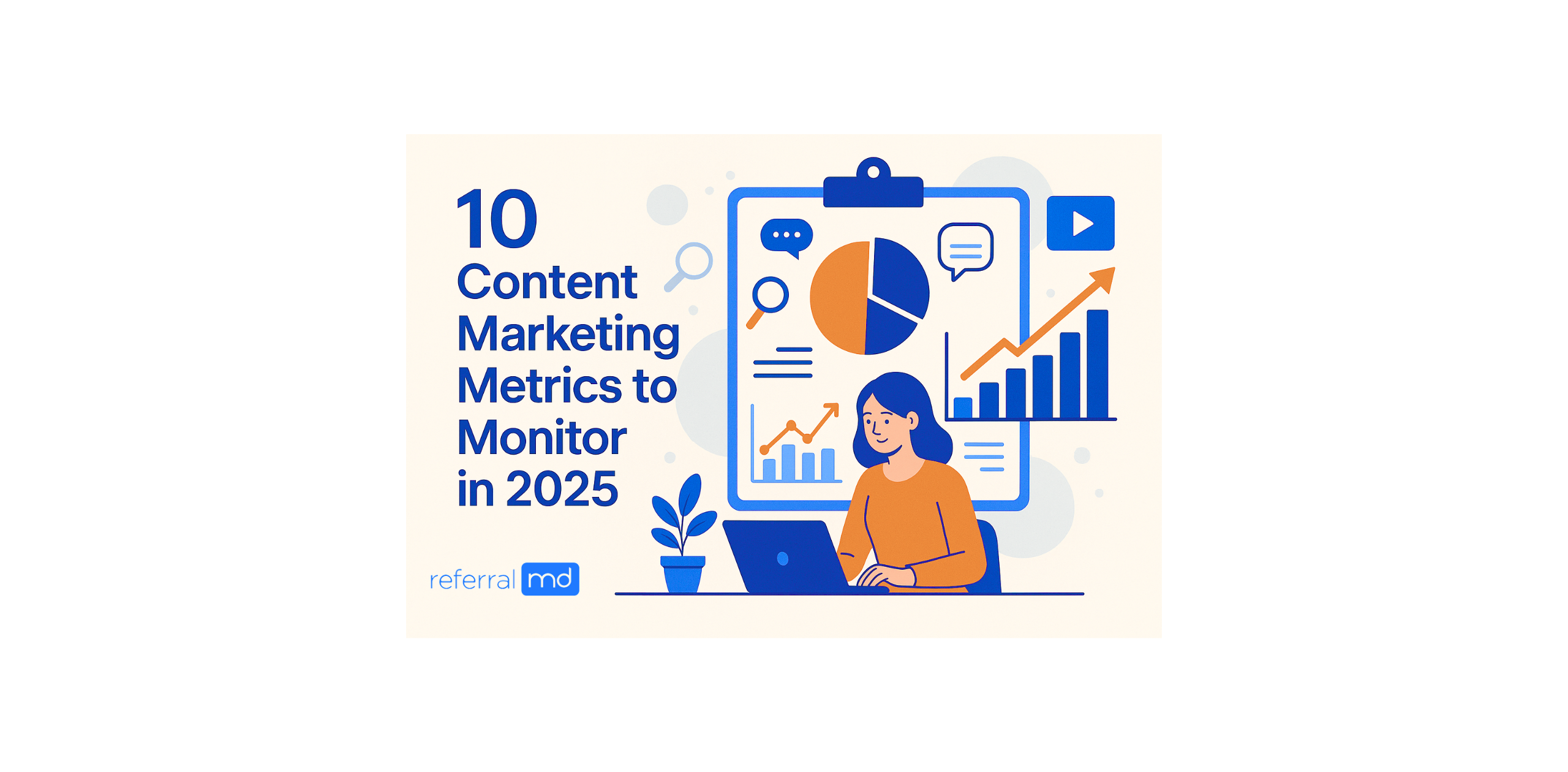In order to maintain patient loyalty, healthcare practices need to improve online scheduling and have a more agile referral management solution.
When looking to effectively increase and retain the number of patients coming to your practice, it is crucial to understand how implementing the right strategies is key to converting leads and maintaining patient loyalty. To accomplish growth, your practice needs to incorporate digital scheduling and an efficient referral management system.

Maintain Patient Loyalty and Grow your Healthcare Practice
No matter what business you’re in, it’s vital to retain customers to achieve growth. Offering incentives and meeting the demands of customers by providing convenient solutions are other ways as well. For instance, did you know that adding features like online appointment scheduling and referral software can increase patient satisfaction and, ultimately, loyalty? With the world rapidly changing due to the ongoing coronavirus pandemic, along with the hyper-connected reality in this day and age, online scheduling and better referral management are going to be what makes the difference in patient retention and loyalty to practices.
Practices are boosting retention and implementing engagement strategies to create lasting loyalty with digital scheduling and referral management tools. In this article, we’ll discuss why these two features are vital in maintaining loyalty. Let’s get started.
Digital Scheduling
How do you keep your clients coming back and even refer you to their networks? To earn loyalty, you need to prioritize the needs of your patients. After the first appointment, your clients are weighing their options. They are looking at the time, effort, and money required for follow-up appointments and ask themselves whether it all makes sense.
Convenient access to care is imperative to patient loyalty. It starts with the ease of appointment scheduling. This is why your practice needs to take booking digital to drive growth and loyalty. Practices have to master everything about access and make it convenient for people to book an appointment without traditional scheduling hassles.
Convenience is a primary concern to those visiting your practice. In fact, 51.3 percent of all patients listed access and convenience as the top factors determining their healthcare facility of choice. Thus, it’s in your practice’s best interest to prioritize convenience even when it comes to scheduling. If your practice does not yet offer digital scheduling, it’s time you considered adding this tool to your online profiles and website.
While over 80 percent of clients prefer to schedule their appointments online, most practices don’t offer patients this option. Providing online scheduling gives your practice a competitive advantage. It also allows you to dedicate more time to care, which improves patient experience and leads to satisfaction—a crucial factor in ensuring loyalty. Here are other ways your practice stands to benefit:
- Digital scheduling attracts new clients. Research reveals that about 63 percent of appointments booked online come from new people, and good reason. A patient who takes action instantly on your site isn’t likely to go searching for another provider.
- Even when your practice is closed, the online scheduling is available round the clock. The fact is, it is not always possible for someone to schedule appointments during your office hours. So, by enabling online scheduling, you provide a way for patients to book their appointments at their most convenient time.
- In one study, over 60 percent of patients reported that they would change healthcare providers for their ability to schedule needed appointments quickly. Electronic self-scheduling is an effective way to accommodate your clients’ desires for increased access and convenience, which will keep them coming back.
- Administrative work is considerably reduced with online scheduling. It may be hard for your front office staff to offer quality service while at the same time completing administrative tasks when they are consistently interrupted by phone calls. Also, long hold times can negatively impact the patient experience. With digital scheduling, your staff will concentrate on providing an exceptional experience to people who are physically in the office.
Better Referral Management
Referrals are considered a high source of quality potential patients. Actually, referrals are essential to the growth and stability of your practice. One of the main challenges faced by practices is managing referrals. This is where the right enterprise referral management system can be invaluable. The goal of referral management functionality is to improve and streamline communication among healthcare providers regarding patient care.
The process of referrals in most practices makes it hard for people to receive the care they need. One-third of the patients who get a referral, just 20-30% do not follow through. Challenges include lengthy appointment lead times and a lack of proper communication between providers. As such, a solution is needed to eliminate the challenges and run a profitable practice. And all this starts with having a better referral management system. 
Let’s look at a typical scenario: After evaluation, a PCP refers their patient to a specialist. The physician initiates a referral in their EMR and verbally recommends the person. Once the individual leaves with unclear instructions, they might decide to research their own and find another specialist. The person gets in touch with the specialist and may have several back and forth interactions before scheduling an appointment. Eventually, the patient spends an hour or more trying to confirm an appointment.
The challenges in the process above include:
- The receiving and referring provider may not communicate.
- Leakage with referral management—there is a breakdown in the management process. For instance, the referring provider doesn’t know whether their client showed up or how far the appointment is.
- Patients are left with no clear instructions on the steps to take next and have to coordinate all scheduling of the referral appointment. In such scenarios, clients easily switch to more convenient providers.
All these challenges create a poor experience, and they can be mitigated by a better referral management solution that helps with the following:
- Streamlines information sharing across providers.
- Makes referrals more convenient. Both the referral and appointment are consolidated after a referral is recommended. This means finding the appropriate provider and confirming the appointment. As a result, referral access is made more convenient, and appointment lead times are reduced, which leads to increased completion rates of referrals.
- Enables practices to re-engage those who didn’t follow through proactively.
Basically, what you need is a user-friendly referral management CRM software that can deliver innovative features to help your practice optimize care and gain patients’ loyalty. Referral services allow you to easily analyze, track, and manage patient referrals throughout their lifecycle.
Conclusion
To maximize loyalty, your practice needs digital scheduling and a referral management system. By incorporating these two features, you will give your practice the best opportunity for long-term success. It will also ensure your clients get optimal care at the appropriate level and at the right time. With the right resources and a focused effort, you can create an efficient process that enhances care in your practice, increasing satisfaction and enhancing patient loyalty. Let us know your experience with electronic scheduling and referral management and how they have helped with patient loyalty. We’d love to hear about it.












